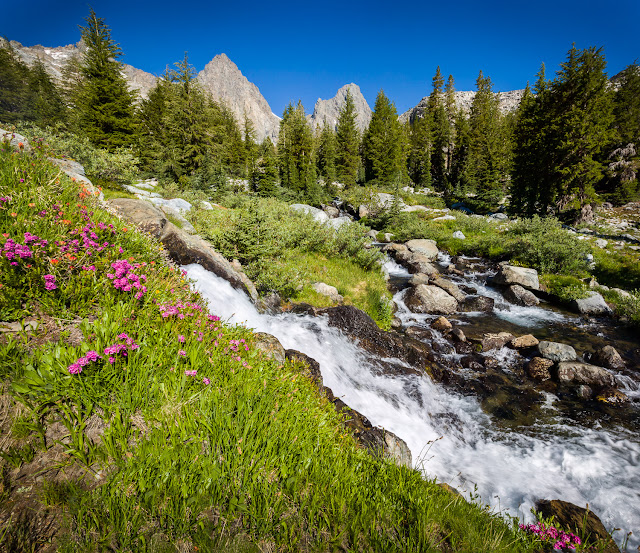In my readings of Hopkins yesterday I came across a verse which might be used as an epitaph on a tombstone for any of those nature loving environmentalists amongst us. I found it in "Inversnaid" and it can be found in the last four lines of the verse. I've also included a commentary to the verse as a help to understanding it. Enjoy.
R.E. Slater
November 17, 2017
"Inversnaid,"
by Gerard Manley Hopkins
This darksome burn, horseback brown,
His rollrock highroad roaring down,In coop and in comb the fleece of his foam
Flutes and low to the lake falls home.
A windpuff-bonnet of fáwn-fróth
Turns and twindles over the broth
Of a pool so pitchblack, féll-frówning,
It rounds and rounds Despair to drowning.
Turns and twindles over the broth
Of a pool so pitchblack, féll-frówning,
It rounds and rounds Despair to drowning.
Degged with dew, dappled with dew
Are the groins of the braes that the brook treads through,
Wiry heathpacks, flitches of fern,
And the beadbonny ash that sits over the burn.
Are the groins of the braes that the brook treads through,
Wiry heathpacks, flitches of fern,
And the beadbonny ash that sits over the burn.
What would the world be, once bereft
Of wet and of wildness? Let them be left,
O let them be left, wildness and wet;
Long live the weeds and the wilderness yet.
Of wet and of wildness? Let them be left,
O let them be left, wildness and wet;
Long live the weeds and the wilderness yet.
- Gerard Manley Hopkins
Commentary on Inversnaid by Hopkins
"The sensation of a stream"
Hopkins describes the different parts of a highland stream, using word-painting to bring out its wildness, hoping that that wildness might never be destroyed. Mountain burn itself is a mountainside brook which is the focus of the poem as the poet witnesses a mountain stream rushing down the hillside and emptying itself into the lake below.
Hopkins describes it mainly from the bottom upwards, which is how he would have experienced it, having arrived on the lakeside, either by road or, more probably, by ferry. He emphasizes its untameable force as it pours over a waterfall, or series of falls, interspersed with whirlpool-like depths at the base of the cliffs.
Stanza 1 describes the final fall of the stream, or burn, in its tumultuous rush into the lake;
Stanza 2 describes the movement of the water in a deep pool formed under the cliffs;
Stanza 3 moves to higher ground, the plateau on top of the moor, so the stream is smaller and flowing less violently. All the time, Hopkins is trying to paint detailed pictures of each part of the stream.
The final stanza 4 is a repeated sort of prayer: ‘Let them…O let them….'. It is not clear who is to do the letting:
- Is it a prayer to God or to his fellow humans?
- Is it a prayer at all, or just a heartfelt desire?
- Or do they come to the same thing?
Certainly, it is an unusual finish for Hopkins, but very memorable in its simplicity. It only takes a few minutes to learn by heart.
Investigating Inversnaid:
- Locate words and phrases that personify the stream.
- Try learning the last stanza by heart.



